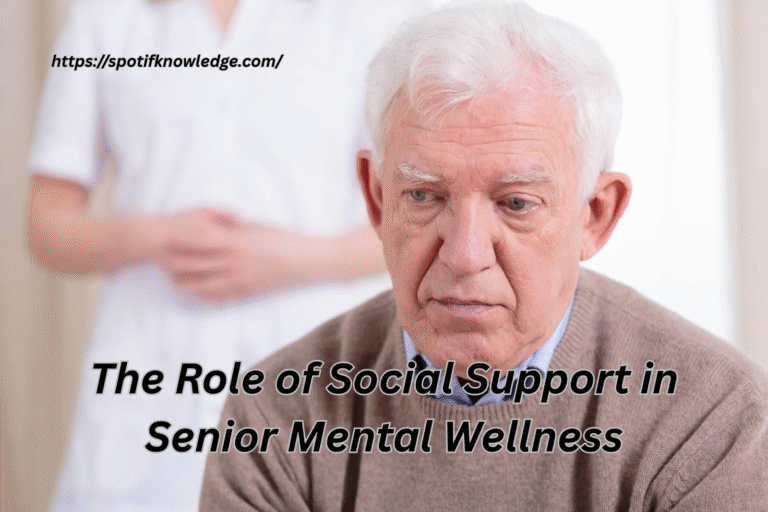As we age, maintaining our mental wellness becomes increasingly important. One significant factor that can greatly influence our mental health is social support.
Many seniors find joy and comfort in their relationships with family, friends, and their community. In fact, having a strong support network can help combat loneliness and depression and promote stability in life.
Understanding the role of social support in senior mental wellness can shed light on how building connections can foster a healthier, happier life in later years.
What Is Social Support?
Social support refers to the emotional and practical assistance we receive from those around us. This support can come from various sources, including family members, friends, and community groups.
It can involve a simple chat over tea, joining a community club, or participating in activities that nurture relationships. Social support is crucial, particularly for seniors, as it can significantly enhance their quality of life.
How Social Support Affects Mental Wellness
Studies have shown that social support plays a vital role in the mental wellness of seniors. When older adults engage with others, they experience feelings of belonging and purpose.
Evidence suggests that seniors who have regular social interaction are less likely to feel depressed. In fact, a study published in the Journal of Health and Social Behavior found that seniors with strong social ties are less likely to experience mental health problems.
The Impact of Loneliness
Loneliness can have a marked effect on a senior’s mental health. When individuals feel isolated, they may struggle with feelings of sadness and anxiety. Social support can act as a buffer against feelings of loneliness.
Engaging with peers can also provide emotional stability and reassurance. Seniors who face mental health challenges often feel stigmatized. They may hesitate to seek help or talk about their struggles, especially if they worry about being judged.
Ways to Strengthen Social Support
In our fast-paced lives, it’s essential to prioritize social connections. Join Community Groups. Many communities offer clubs and organizations tailored to seniors. These groups encourage social interaction and provide opportunities to meet new people.
Volunteering can be an excellent way for seniors to connect with others while giving back to their community. It fosters a sense of purpose and can alleviate feelings of loneliness.
Regular phone calls, video chats, or even simple text messages can keep friendships alive. Seniors should maintain connections with family and friends, whether they are near or far.
Engaging Families and Friends
Family and friends can play an essential part in supporting seniors. Simple actions like visiting, listening, or sharing stories can have a positive impact on their mental wellness.
Open communication is key. Loved ones can encourage seniors to express their feelings and validate their experiences. This practice helps reduce feelings of mental health stigma, allowing seniors to talk about their challenges and seek necessary support.
As we reflect on the power of social support, let us commit to fostering connections that promote mental wellness among our seniors experiencing mental health stigma.
Resources for Seniors
Seniors looking for social support can also access numerous resources. Many local organizations provide mental health services, social initiatives, and recreational activities aimed at seniors.
Online platforms may offer forums where seniors can connect with others who share similar experiences. These resources can help combat loneliness and enhance mental wellness.
Embracing Social Support
It’s clear that social support is crucial for seniors’ mental wellness. Everyone deserves to feel valued and connected, especially as they age. Emphasizing the importance of social support can lead to healthier, more fulfilling lives for seniors.
Visit our website and read more.

